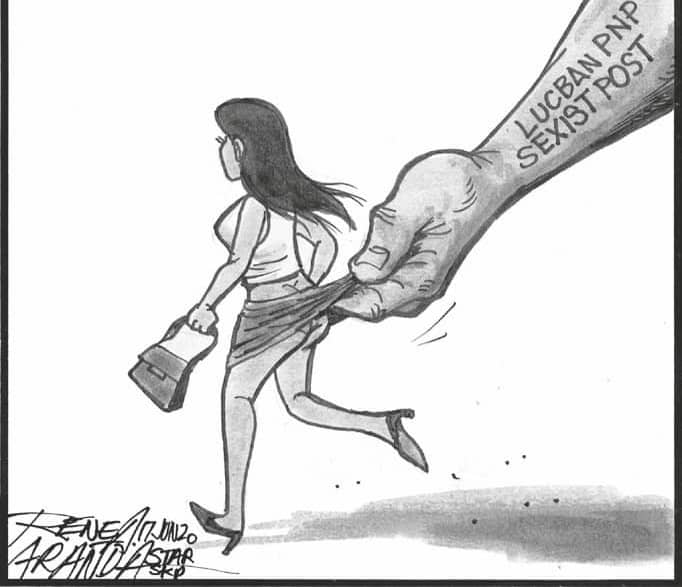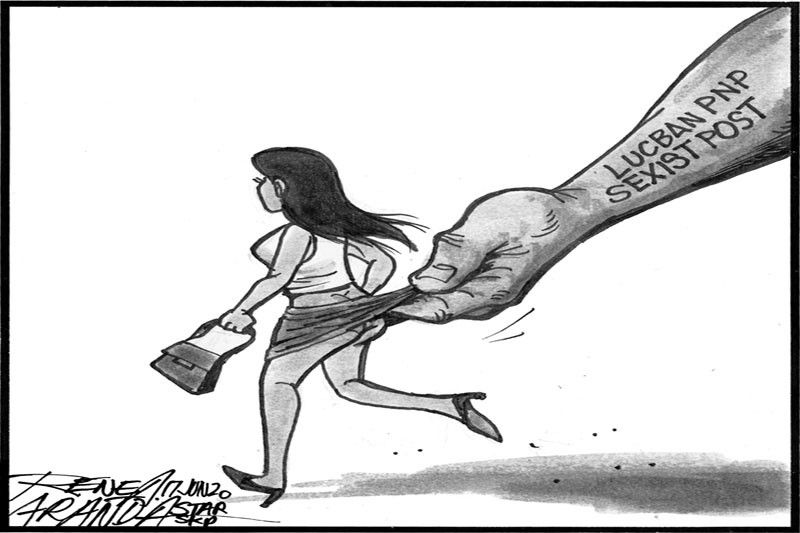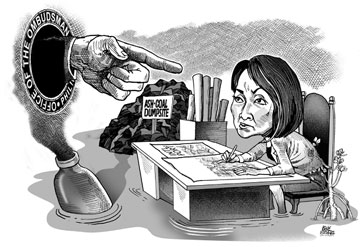When we think about the word "victim," it often brings to mind someone who has suffered, perhaps from a crime, an accident, or just some hard circumstances. It's a person acted upon, someone harmed or killed because of another's actions or even just bad luck, as we often define it. Yet, the story of those who suffer, especially after a crime, is rarely simple. It's a journey that can take unexpected turns, sometimes leading a person from being clearly the one harmed to, quite surprisingly, being viewed with suspicion, and then, with immense strength, to becoming a survivor.
This path, from being a crime victim to sometimes being labeled a suspect, and then finding the inner power to become a survivor, is a complex and deeply personal one. It challenges our usual ways of seeing things, our typical ideas about who is at fault and who needs help. This article looks at these difficult transformations, helping us get a better sense of the struggles and the incredible resilience people show.
We'll explore how someone can find themselves in such a tough spot, what it takes to get through it, and how we, as a community, can offer real support. This is about understanding the human experience behind the labels, and it's almost about recognizing the sheer will to keep going when things are very, very tough. As of , these conversations are more important than ever, as we work to build more understanding societies.
Table of Contents
- Understanding the Initial Hurt: What it Means to Be a Victim
- The Unsettling Shift: When Victims Become Suspects
- The Path to Survivorship: Moving Beyond Labels
- Challenging Our Perceptions: Empathy and Understanding
- Common Questions About This Journey
Understanding the Initial Hurt: What it Means to Be a Victim
When we talk about a "victim," we often picture someone who has been hurt, damaged, or killed. It's someone who has suffered because of another's actions or beliefs, or even just from unpleasant circumstances. My text tells us that a victim is "one that is acted on and usually adversely affected by a force or agent," or "a person who has been harmed, injured, or killed as a result of a crime, accident, or other event or action." This definition really helps us see the starting point for so many people who experience terrible things.
A person might be a victim of violence, like the woman knocked unconscious in that viral Cincinnati street fight, who later spoke out about her severe brain trauma. Or they could be a victim of domestic violence, where the harm is ongoing and often hidden. The Michigan Department of Health and Human Services, Division of Victim Services, for example, activated its crime victim compensation program to help people in these situations, which is a very important step. Basically, anyone who suffers from a destructive or injurious action or agency is, in a way, a victim.
The experience of being a victim can be incredibly isolating, too. People might feel like they don't know what to do, or they might struggle with the physical and emotional wounds that come with such an event. It's not just about the immediate harm; it's about the lasting impact on a person's life, their sense of safety, and their trust in the world around them. This initial stage is filled with pain and often a great deal of confusion, as people try to make sense of what happened to them.
The Unsettling Shift: When Victims Become Suspects
It can seem almost unbelievable, but sometimes, a person who was clearly a victim of a crime can find themselves under suspicion. This is a particularly harsh twist, adding another layer of distress to an already difficult situation. Someone who has been attacked, injured, or robbed might suddenly be questioned in a way that suggests they were involved, or even responsible, for what happened to them. This can feel like a betrayal from the very systems meant to protect them, and it's a very challenging thing to go through.
Why Does This Happen?
There are several reasons why a victim might become a suspect, and they are often quite complicated. Sometimes, it's due to a lack of clear evidence at the scene, which can lead investigators to consider all possibilities, even the most unlikely ones. Other times, it might be related to the victim's past, or their personal relationships, which can unfortunately cast a shadow of doubt. It could also be a case of self-defense, where a victim's actions to protect themselves are later scrutinized, making them seem like an aggressor, or so it seems.
Another reason can be the way a person behaves after a traumatic event. Someone who is in shock, or who reacts differently than what might be "expected," could be misinterpreted. Trauma can make people act in ways that don't always make sense to an outsider, and this can, unfortunately, lead to misunderstandings with law enforcement. This situation is particularly unfair, as the person is already suffering, and then they face further scrutiny and judgment.
Sadly, sometimes biases play a role too. Prejudices against certain groups of people, or assumptions based on stereotypes, can lead to a victim being unfairly targeted for suspicion. This is a serious problem that highlights the need for more sensitive and fair approaches in how we handle crime investigations. It's a situation that truly adds insult to injury for someone already hurting.
The Impact of Being Suspected
The emotional toll of being a victim is already immense, but being treated as a suspect on top of that can be devastating. It can lead to feelings of extreme anger, confusion, and a deep sense of injustice. The person might feel like no one believes them, or that they are being blamed for something that was done to them. This can make it much harder for them to heal and move forward, as they are constantly fighting against a narrative that paints them in a negative light.
This experience can also damage a person's trust in authority figures, like the police or the justice system. If the very people meant to help them are treating them with suspicion, it can make them withdraw and become less likely to seek help in the future. It's a very isolating experience, too, as friends or family might also start to question things, or they might not know how to support someone who is facing such unfair accusations. This period is often marked by deep emotional pain and a feeling of being completely alone, and that's a lot for anyone to carry.
The Path to Survivorship: Moving Beyond Labels
Despite the immense challenges of being a victim and, in some cases, being wrongly suspected, many people find incredible strength to move towards survivorship. This is a powerful transformation, a shift from being defined by what happened to them to becoming someone who has overcome it. It's not about forgetting the past, but about integrating the experience into their life story in a way that allows for healing and growth. This journey is often a very long one, and it typically requires a lot of inner work and outside help.
Reclaiming Your Story
A key part of becoming a survivor is taking back control of one's own narrative. When someone is a victim, their story is often told by others – by the media, by police reports, by court documents. When they are suspected, the story becomes even more distorted. Survivorship involves speaking out, if they choose to, and telling their truth in their own words. This might mean sharing their experience with trusted friends, in support groups, or even publicly, as the woman from Cincinnati did when she spoke about her brain trauma.
This act of reclaiming their voice is incredibly empowering. It allows them to define themselves not by the harm they experienced, but by their strength in enduring it. It's about shifting from being "acted on" to becoming an "agent" in their own recovery. This process can be incredibly healing, helping them to process the trauma and build a new sense of self, which is pretty amazing when you think about it.
The Power of Support
No one becomes a survivor alone. The journey from victim to survivor, especially after being a suspect, relies heavily on strong support systems. This can include family and friends who believe in them and stand by them, even when others doubt. It also includes professional help, such as therapists who specialize in trauma, or legal advocates who can help them navigate the justice system. Organizations dedicated to victim services, like those that offer crime victim compensation programs, play a vital role in providing practical and emotional assistance.
Support groups are also incredibly valuable, as they offer a safe space for people to share their experiences with others who truly understand. Knowing you're not alone, and hearing how others have coped, can provide immense comfort and practical strategies for healing. These connections help rebuild trust and foster a sense of community, which is really important for anyone trying to put their life back together. You can learn more about victim support resources on our site, and find more information on related topics.
Challenging Our Perceptions: Empathy and Understanding
The journey from victim to suspect to survivor challenges us all to look beyond the surface and practice greater empathy. It forces us to question our assumptions about who a "victim" is, and how someone "should" react to trauma. We need to remember that someone who has been harmed is not just a statistic or a case file; they are a person with a complex story, feelings, and a future they are trying to build. This means listening without judgment, offering belief, and providing unwavering support.
It's important to understand that the term "victim" itself can carry different meanings and connotations, as we saw from my text. While it accurately describes someone who has suffered, the goal for many is to move beyond that label to "survivor," which suggests agency and strength. Our role, as a community, is to create environments where this transformation is possible, where people feel safe enough to share their stories and get the help they need without fear of further harm or judgment. This involves advocating for fairer justice systems and promoting public awareness about the many ways trauma can affect a person. For more insights, you might look into resources from a national victim support organization like Victim Support.
Common Questions About This Journey
People often have questions about the complex path from victim to suspect to survivor. Here are a few common ones:
1. How can a person who was clearly a victim end up being treated as a suspect?
This can happen for a few reasons, including unclear evidence at a crime scene, a victim's actions in self-defense being misunderstood, or even biases in the investigation. Sometimes, how a person reacts to trauma might also be misinterpreted by those who don't understand the effects of such an experience. It's a really difficult situation for anyone to be in, and it's something that really needs more public awareness.
2. What does it mean to "reclaim your story" as a survivor?
Reclaiming your story means taking back control of how your experience is told. Instead of others defining you by the harm you suffered, you choose to share your truth in your own words. This can involve speaking about what happened, processing your feelings, and focusing on your strength in moving forward. It's about shifting from being a person acted upon to someone who is actively shaping their own healing journey, which is a powerful step.
3. What kind of support is most helpful for someone going through this difficult transformation?
Support that is empathetic and non-judgmental is key. This includes trusted friends and family, professional therapists who understand trauma, and legal advocates if the person is dealing with the justice system. Support groups can also be incredibly valuable, offering a sense of community and shared understanding. Practical help, like access to victim compensation programs, can also make a significant difference in someone's ability to recover. It's about providing a safety net, so to speak, for those who are trying to find their footing again.



Detail Author:
- Name : Dr. Verdie Johnston
- Username : karelle.hauck
- Email : madonna.will@gmail.com
- Birthdate : 2002-01-29
- Address : 365 Lynch Mill Suite 377 Townebury, MA 77262-3299
- Phone : (734) 603-0119
- Company : Gibson-Rutherford
- Job : Precision Aircraft Systems Assemblers
- Bio : Quo saepe nulla perspiciatis illo quos. Ea accusantium et aut omnis. Nobis optio illum quos dolores.
Socials
instagram:
- url : https://instagram.com/emelia.dach
- username : emelia.dach
- bio : Error maiores deleniti eum. Deserunt sunt quis et a. Ut sed rerum nam accusamus a laborum.
- followers : 4522
- following : 1654
facebook:
- url : https://facebook.com/emelia_dev
- username : emelia_dev
- bio : Quisquam cumque dolorum nostrum id aut.
- followers : 3068
- following : 622